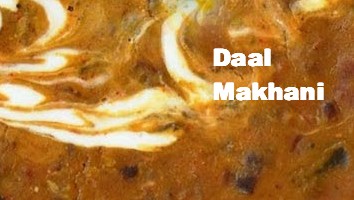Vitamin, any of the organic compounds essential for many living organisms to maintain normal health and development. Vitamins also assist in the formation of hormones, blood cells, nervous-system chemicals, and genetic material. The Vitamins are divided into Fat soluble -- A, D, E & K and water soluble -- all types of vitamin B & C.
|
Vitamins |
Dietary Source | Major Functions |
Deficiency Symptoms |
|
A |
Liver, Egg yolk, Fish oil, Kidney, Milk fat, Dark green fruits and vegetables | Aids in
maintenance of healthy bones, skin and hair,
normal bone and teeth formation. Essential
for vision, especially night vision. Helps repair body tissues.
Reduces susceptibility to infections. Helps protect the membranes of the
mouth, nose, throat & lungs.
|
Night blindness, rough, dry, scaly skin, loss of sense of taste, increased susceptibility to infections, retarded growth, defective teeth & gums. |
|
B1 (thiamin) |
Pork, Liver, Whole-grain and enriched cereals and breads, Legumes, Potatoes. | Helps produce energy in all cells of the body. Promotes growth & good muscle tone. Stabilizes the appetite. Essential for the normal functioning of the nervous system, muscles & heart. | Poor appetite, weakness, nerve damage, pins and needles in legs, fatigue, loss of weight, vague aches & pains. Beriberi, which affects the nervous and cardiovascular systems, and muscle wasting. |
| B2 (riboflavin) | Green vegetables, Liver, Wheat germ, Eggs and Cheese. | Necessary for carbohydrate, fat and protein metabolism. Essential for growth and general health. Promotes smooth skin. Necessary for the maintenance of good vision, nails & hair. Aids in the formation of antibodies and red blood cells. | Itching and burning eyes, which become sensitive to light. Cracks and sores in the mouth & lips, bloodshot eyes, dry and flaky skin, retarded growth, sore, red tongue, skin rash, digestive disturbances, depression . |
| B3 (Niacin) | Liver, poultry, meat, canned tuna and salmon, whole grain and enriched cereals, dried beans and peas, and nuts. | Helps metabolize protein, carbohydrate and fat. Maintains the nervous system. May reduce high blood pressure. Reduces the cholesterol level in the blood. Helps maintain healthy skin, tongue & digestive system. Improves circulation | Diarrhea and memory loss, weakness, irritability, headaches, muscular weakness, loss of appetite, gastric problems. |
| B6 (Pyridoxine) | grains, cereals, bread, liver, avocadoes, spinach, green beans, and bananas. | Aids in protein metabolism. Helps with normal brain function. Essential for normal growth. Helps maintain a proper balance of sodium & phosphorous in the body .Aids in the formation of antibodies. Aids in the production of hormones and the formation of red blood cells. Maintains the central nervous system | Skin disorders, cracks at the mouth corners, smooth tongue, convulsions, loss of hair dizziness, nausea, anemia, nervousness, arm & leg cramps and kidney stones. |
| B12 (Cobalamin) | Liver, kidneys, meat, fish, eggs, and milk. | Necessary for carbohydrate, fat and protein metabolism. Helps in the formation & regeneration of red blood cells. Helps maintain the central nervous system. Promotes growth in children. Needed for calcium absorption. Increases energy. | Weakness and fatigue, poor appetite, red-sore tongue or smooth tongue, growth failure in children, nerve damage. |
| Pantothenic Acid | Salmon, liver, kidney, egg, yeast, chicken, yogurt, sweet potato, milk, ham, corn, whole-wheat macaroni, kidney beans, avocado, mushrooms, soybeans, banana, orange, potato, broccoli, cantaloupe, peanut butter, apple, whole grain breads and cereals. | Helps convert proteins, carbohydrates, fats into energy. Synthesizes hormones and cholesterol. Fights infections by building antibodies. Improves the body's resistance to stress. | Retards growth, infertility, fatigue, irritability, skin abnormalities, weakness, depression, decreased resistance to infection, muscle cramps. |
|
Folic Acid ( Folacin ) |
meats, leafy green vegetables, legumes, nuts, whole grains, and brewer's yeast | Necessary for DNA & RNA synthesis. Essential for the growth and reproduction of all body cells. . Especially important for women of childbearing age | Anemia , depression, impairs growth & intestinal problems. |
| C ascorbic Acid | Tomatoes, Fruits (especially citrus), Melon, Raw cabbage, Green leafy vegetables, Peppers | Essential for healthy teeth, gums, skin, blood and bones. Helps heal wounds, scar tissue, and fractures. Aids in the absorption of iron from plant sources of food. Builds resistance to infection, maintains white blood cell function. Aids in the treatment of the common cold. | Scurvy a disease that causes excessive bleeding, loose teeth, and swollen gums. Slow healing wounds and fractures. Swollen or painful joints. Nosebleeds, impaired digestion, loss of appetite and aching joints. |
| D | egg yolk, liver, tuna, and milk | Improves absorption and utilization of calcium and phosphorous. Essential for normal growth and development. Required for bone and teeth formation. Maintains a stable nervous system and normal heart action.. Helps with calcium absorption from food | Rickets (softening of bones) in infants and children, softening of bones in adults, tooth decay, muscular weakness, improper healing of fractures, spontaneous fractures, defective bone growth |
| E | Wheat germ, Vegetable oils, Egg yolk, Milk fat, Green leafy vegetables, Nuts | Strong anti-oxidant nutrient, which helps protect tissues (cells) against damage caused by free radicals.. Important for cell health and the proper functioning of the immune system. Protects cell membrane and tissues. Essential for normal growth and development. Aids in bringing nourishment to cells | Poor muscular and circulatory performance, anemia , abnormal fat deposits in muscles, dry skin. |
| K | leafy green vegetables, egg yolks, soybean oil, and liver | Essential for the
formation of blood-clotting proteins. May aid in bone mineralization.
|
Diarrhea,
increased tendency to hemorrhage.
|









Opinions
Jack Lenox
Kevin Koehler
Ben Lowery
Neha Gajjar